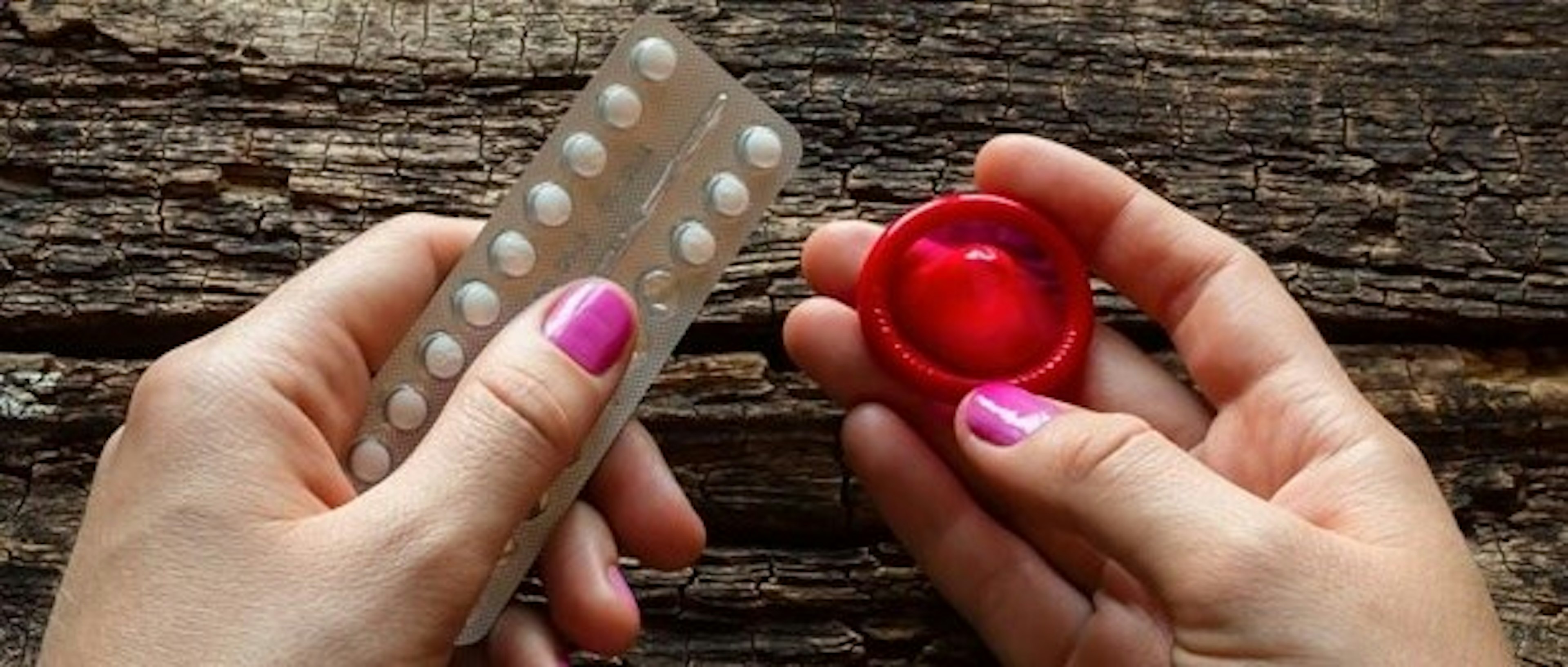
Secret shoppers: Are women given the best contraception advice?
Peer reviewed by Dr Sarah Jarvis MBE, FRCGPLast updated by Dr Anna Cantlay, MRCGPLast updated 17 Nov 2017
If you are sexually active and living in the UK today, you are fortunate to have a great variety of contraception available to you. Whether it’s a condom, pill or a longer-acting contraceptive such as an implant or intrauterine contraceptive device (sometimes known as the IUCD or coil), there are many different options.
But are women always given the best advice? We sent four undercover shoppers, aged 16 to 30, to test the market and record their experiences.
In this article:
Continue reading below
The popular choice
The latest data from 2008 to 2009 shows that a whopping 75% of women under the age of 50 are using contraception. Out of the remaining 25% of women not using it, 13% were not engaged in a sexual relationship with the opposite sex. The contraceptive pill and male condom triumph as the most popular contraceptive choices for one in four of us.
But while this sounds like the nation is well protected from unplanned pregnancy, it's not quite as good as it seems. The last National Survey of Sexual Attitudes and Lifestyles (NATSAL) reported that 15.2% of responders had previously needed to use emergency contraception, sometimes called 'the morning after pill'. In addition, out of those reporting sexual intercourse in the previous four weeks, 65.6% and 73.6% of women had not used a condom, increasing their risk of contracting a sexually transmitted infection (STI).
Patient picks for Birth control
Easy access
Contraception can be accessed free of charge from NHS providers such as GPs and sexual health clinics. Emergency contraception can be bought from most high street pharmacies but it's not cheap - you can expect to pay anywhere from £15 to £30 for one pill. In response to the demand for convenient and accessible contraception, you can now even buy it online through several companies that offer a home delivery service.
But are we forgoing safety in our quest for convenience? Our secret shoppers headed to their local pharmacy to find out.
Continue reading below
Safety first
Our secret shoppers requested contraception from eight different independent and mainstream high street pharmacies, armed with a range of potential scenarios to challenge our pharmacists.
Before their shopping trip, they were trained on the available options and the questions that they should be asked before a safe purchase. So let's get the facts right - what is important to know before you buy?
What's available?
Most high street stores do not provide regular contraceptive pills without a doctor's prescription. They can however be purchased from some online pharmacies.
Condoms
If used correctly, these are 98% effective as a contraceptive.
They offer protection against STIs, including HIV.
Condoms which are safe to use carry a European CE mark and/or the BSI Kite mark. Make sure you check the expiry date.
They come in latex and latex-free options for those with allergies.
Most water-based lubricants are fine to use with condoms, but oil-based ones such as petroleum jelly or lotion may cause them to split.
The emergency contraception pills
There are two 'emergency contraception pills' available, Levonelle® and EllaOne®.
Levonelle works up to 72 hours after unprotected sex and EllaOne® up to 120 hours.
Both pills are most effective the sooner they are taken.
They are thought to work by preventing or delaying ovulation.
If you are sick (vomit) or have diarrhoea within three hours of taking Levonelle® or EllaOne®, it may not work and you could need to take another pill.
If you already take the combined pill, patch or contraceptive ring, you will need to use extra contraception (condoms) for seven days after taking Levonelle®, or for two days if you normally take the progestogen-only pill.
If you take EllaOne®, you need to avoid your regular contraception for five days and use condoms for protection instead. After restarting your regular method, you will need to use condoms for a further seven days if you are on the combined pill, patch or ring and for two days if you take the progestogen-only pill.
Neither option offers long-term contraception.
The copper coil or IUCD
The coil is a device that can be inserted into the womb up to five days after unprotected sex, or five days after the earliest time you could have ovulated.
It the most effective form of emergency contraception.
You can choose to leave the coil in for long-term contraceptive cover.
This is normally accessed through your local sexual health clinic or GP.
Continue reading below
What's appropriate for you?
Before buying emergency contraception, it is important you are asked about the exact time of unprotected sex and details on your last period, so an appropriate option is chosen for you. Levonelle is safe to use with most existing medical conditions. EllaOne should be avoided in women who:
Have asthma and take regular steroid tablets.
Have severe liver problems.
Have an allergy to any of the ingredients.
Have issues with lactose or galactose metabolism.
Who are breastfeeding (stop breastfeeding for one week after taking).
It is important you are asked about any other medication, as these may interact with the effectiveness of the pill. In women who are overweight (with a BMI over 26), both pills may be less effective, with EllaOne being the better choice of the two in this instance.
Emergency contraception pill

Shop till you drop
All our pharmacies had a wide variety of available condoms to purchase. When asked, sales assistants were able to give our shoppers correct information on effectiveness, application and disposal, and which lubricants were safe to use.
Shopping for the emergency contraception pill resulted in a more varied experience. Women can often feel embarrassed in this situation, so it's really important they're offered a private space to chat. Most of our shoppers reported a positive, confidential experience. However, three out of eight pharmacies offered no private space for a consultation.
One shopper said: "They tried to talk to me about it across the counter - I was really embarrassed as other customers were watching. When I asked to go somewhere private, they offered the staff corridor. I was mortified."
Being put at ease whilst discussing a sensitive topic is a really important part of the consultation. For 70% of the consultations, our shoppers were made to feel comfortable and felt the pharmacist was sympathetic. The remainder reported less favourable experiences, with our 16-year-old shopper stating she felt she was 'interrogated' as they asked to see her ID.
Only 50% of our pharmacies discussed the coil as an option for emergency contraception and gave advice on where to source this. Our 23-year-old shopper was advised she was 'too young' to consider it as a viable option (incorrect).
All but one pharmacy was able to offer both emergency contraception pills to our shoppers. All women offered the pill felt they were given good advice on possible side effects, vomiting and diarrhoea rules and how these might interact with current medication.
Online experience
Google 'morning after pill' or 'contraception', and the search page is filled with sites offering buyers accessible options through online pharmacists and doctors.
Pretending to need both regular and emergency contraception, we sampled five online sites. 80% allowed us to buy the contraceptive pill if we had never had it before, whilst one would only allow a prescription renewal. You could purchase a contraceptive pill from between £19-30, Levonelle® for £15-27 and EllaOn® for £25-35 depending on the site used. Conveniently, 80% of sites had the added benefit of offering home delivery as well as collection in store.
When attempting to buy the oral contraceptive pills, all sites required women to fill in an online health questionnaire before their purchase. This includes an expectation that the purchaser knows their weight, height and recent blood pressure. All health questionnaires asked adequate questions to help identify any potential contra-indications to taking the pill, such as pregnancy, personal and family histories of cancers of the breast and cervix, high blood pressure, migraines and thrombosis risk. A list of current medications was also requested, to confirm there were no interactions.
80% of the sites stated the service was for those aged over 18 years, but most relied on purchasers to enter their medical history honestly and correctly - raising concerns that young girls could still go online to purchase the pill without adequate consultation. However, some sites do try to address this.
Dr Zenon Andreou, medical director of ZAVA, an online doctor, states: "We have a comprehensive system in place to check the patient's identity. If we receive any requests from underage patients, we inform them that we're not able treat them and refer them to the most appropriate service for help."
Only 20% of sites gave advice about the combined contraceptive pill use in older women - it should be avoided in over 50s, over 40s with certain medical conditions and over 35 year olds who are smokers. In these instances, a progestogen-based contraceptive or the copper coil would be more appropriate.
Not all sites give women adequate information on how and when to start their pill, on missed pill advice and on when to have a follow-up with their GP - highlighting potential shortfalls in their consultation model. As with all questionnaire-based consultations, it is impossible to have a fluid conversation about the options available and therefore difficult to get a choice tailored for you.
What have we learnt?
It's great that women now have a variety of convenient options when they want to buy emergency contraception or the contraceptive pill. With increasing availability, it is even more important to ensure women are consulted sensitively and correctly - and to ensure the contraceptive pill they take is the right choice for them.
Article History
The information on this page is written and peer reviewed by qualified clinicians.
17 Nov 2017 | Latest version

Feeling unwell?
Assess your symptoms online for free

